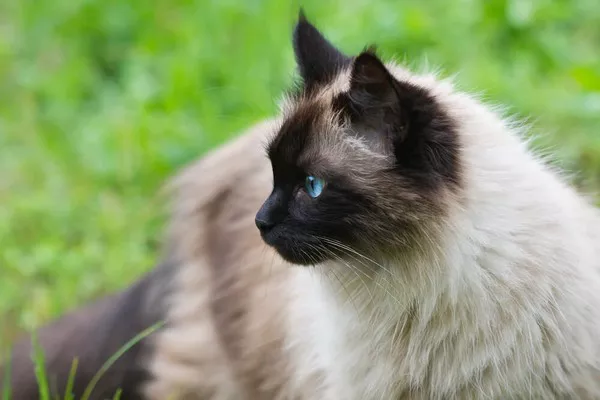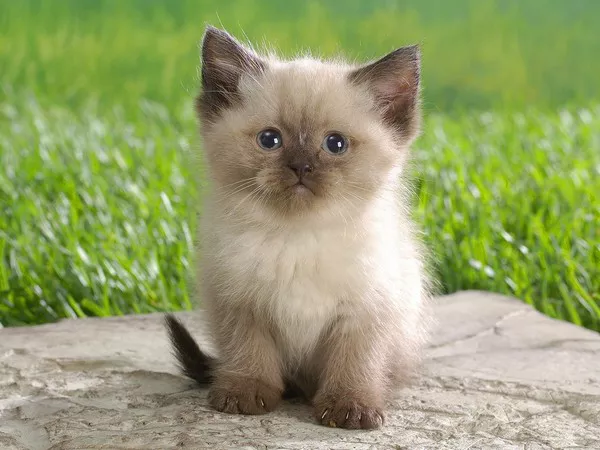Cats are cherished companions known for their independent yet affectionate nature. However, when a cat starts exhibiting undesirable behaviors, such as urinating on beds, it can be both perplexing and frustrating for pet owners. In this comprehensive exploration, we delve into the various reasons why cats pee on beds, offering insights into feline psychology, health considerations, and practical solutions for cat owners facing this common challenge.
Understanding Feline Behavior
Communication Through Urination:
Cats use urine marking as a form of communication. While it’s natural for them to mark their territory, inappropriate urination, especially on beds, can indicate an underlying issue.
Stress and Anxiety:
Cats are sensitive creatures, and changes in their environment, routine, or the introduction of new elements can lead to stress and anxiety. Urinating on a bed may serve as a coping mechanism for cats dealing with emotional distress.
Territorial Marking:
Cats are territorial animals, and urine marking is a way for them to establish and maintain boundaries. This behavior can be triggered by the presence of other animals, changes in the household, or even outdoor stimuli visible from windows.
Medical Considerations:
Before addressing behavioral factors, it’s crucial to rule out potential medical issues. Urinary tract infections, bladder stones, or other health concerns may manifest as inappropriate urination. A visit to the veterinarian is essential for an accurate diagnosis.
7 Common Reasons Why Cats Pee on Beds
1. Stress and Changes in the Environment:
Cats are creatures of habit, and any significant change in their environment can induce stress. This includes moving to a new home, changes in the household, or the addition of new pets. Cats may resort to urinating on beds as a response to these stressors.
2. Territorial Conflicts with Other Animals:
The presence of other animals, whether within the household or in the neighborhood, can trigger territorial marking. Cats may feel the need to assert their dominance and mark their territory, often choosing the bed as a prominent and frequently used location.
3. Litter Box Issues: Unfavorable Conditions:
Cats are particular about their litter box preferences. If the litter box is not kept clean, is located in an unfavorable spot, or if the cat associates it with negative experiences, they may seek alternative places, including beds, for elimination.
4. Medical Issues: Painful Urination:
Cats may avoid using the litter box if they associate it with pain during urination. Medical conditions such as urinary tract infections, bladder stones, or inflammation can make urination uncomfortable, leading cats to choose alternative locations.
5. Anxiety and Insecurity:
Cats experiencing anxiety or insecurity may use urination as a way to comfort themselves. The scent of their own urine can provide a sense of familiarity and security. Events like the absence of a family member or changes in the household dynamic can trigger such feelings.
6. Marking Personal Belongings:
Cats may view beds as an extension of their owners’ scent. Marking personal belongings, including bedsheets and blankets, can be a way for cats to establish a connection with their owners or assert their presence in the household.
7. Social Hierarchy and Dominance:
In multi-cat households, social hierarchy and dominance play a significant role. Cats may urinate on beds as a way to establish their rank or to challenge the hierarchy within the group.
See Also: 4 Reasons Why Is My Siamese Cat Peeing Everywhere
Addressing and Resolving the Issue
Consultation with a Veterinarian:
When faced with inappropriate urination, the first step is a visit to the veterinarian. A thorough examination will help rule out any underlying medical issues that may be contributing to the behavior. If a medical condition is identified, appropriate treatment can be initiated.
Maintaining a Clean Litter Box:
Ensuring that the litter box is clean, placed in a quiet and accessible location, and using a litter substrate that the cat finds comfortable are crucial steps in preventing inappropriate urination. Cats are more likely to use the litter box if it meets their preferences.
Addressing Stressors:
Identify and address potential stressors in the cat’s environment. Providing a safe and secure space, maintaining consistent routines, and minimizing changes can help reduce stress. Feliway, a synthetic feline facial pheromone spray, may also be used to create a calming environment.
Multiple Litter Boxes:
In multi-cat households, having multiple litter boxes can prevent conflicts and address territorial marking. Cats may have individual preferences, and having options ensures that each cat can choose a suitable location for elimination.
Positive Reinforcement:
Positive reinforcement involves rewarding a cat for using the litter box appropriately. Treats, praise, or affection provided immediately after desired behavior can create positive associations with using the litter box.
Behavioral Modification:
Consistency is crucial in behavioral modification. Avoid punishment, as it can exacerbate stress and anxiety. Instead, focus on reinforcing positive behaviors and providing a conducive environment for the cat.
Consulting a Feline Behavior Specialist:
In cases where inappropriate urination persists, consulting a feline behavior specialist can provide expert guidance. These professionals can conduct a thorough behavioral analysis and recommend tailored interventions based on the specific needs of the cat and its environment.
Conclusion
Understanding the reasons why cats may pee on beds requires a multifaceted approach that considers both behavioral and medical factors. Cats communicate through their behaviors, and inappropriate urination is often a sign of underlying issues that need attention.
By addressing stressors, maintaining optimal litter box conditions, and seeking veterinary care, pet owners can work towards resolving this challenging behavior. Patience, consistency, and a proactive approach to feline well-being are key elements in fostering a harmonious relationship between cats and their owners.












![Do Birman Cats Like to Cuddle? [Revealed!]](https://www.catsmeowweb.com/wp-content/uploads/2023/06/burmese-cat-31.webp)














